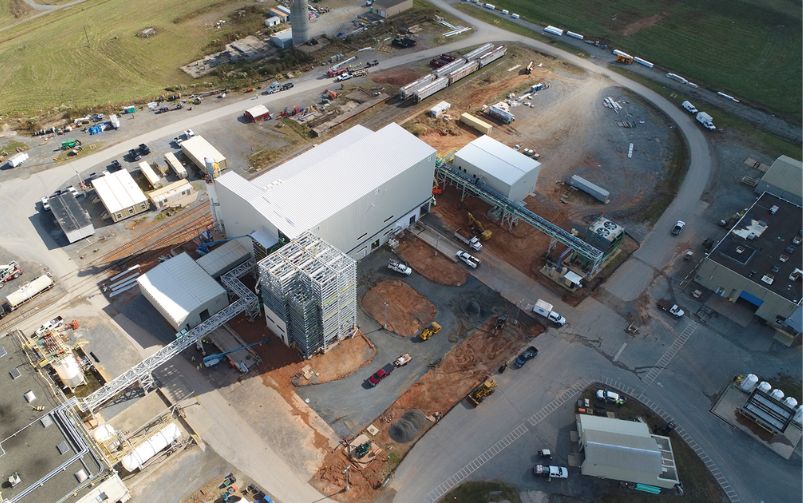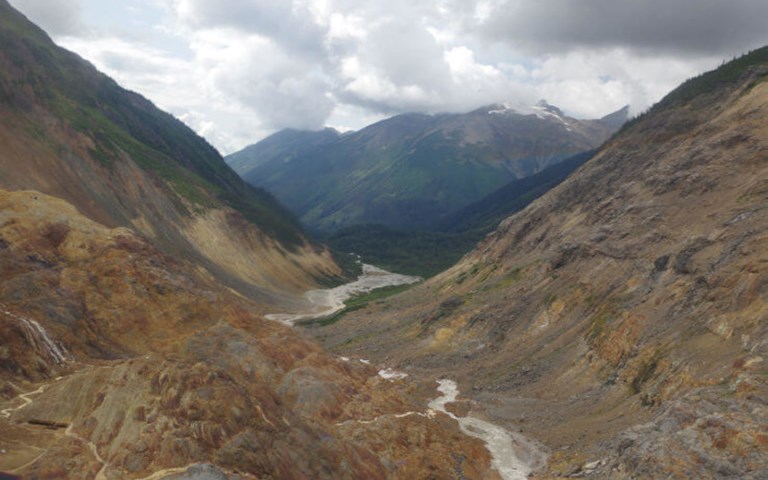Tahltan Nation and Nisga’a Nation have revived a centuries-old peace treaty to maximize economic benefits at Seabridge’s KSM gold project. Courtesy of Seabridge Gold.
Welcome back to your weekly mining news recap, where we catch you up on some of the news you may have missed. This week’s headlines include ways to include workers with a disability in hiring practices, the departure of Wesdome’s president and CEO and Teck’s pledge to protect forests.
With the price of cyanide increasing between 25 and 30 per cent, operators are turning to a cost-efficient methods of recycling or removing cyanide from gold processing. Quebec-based Corem is developing a four-step process to reuse cyanide through repeated cycles of gold leaching, with early results reflecting that as much as 78 per cent of cyanide can be recycled. Wyoming’s Group 11 Technologies is applying cyanide-free water-based leaching lixiviant for in-situ gold recovery.
A report titled “Rethinking Disability in the Private Sector” revealed that roughly 800,000 working-age Canadians living with a disability are not currently working due to employment barriers, and are a valuable resource for industries facing employment shortages. Ontario Disability Employment Network diversity specialist J.C. Doyle covers some inclusive measures companies can take to hire workers with a disability include speaking directly and genuinely to the disability community, presenting a straightforward disability-inclusion strategy and more.
Rio Tinto’s renewable diesel trial at its California-based open-pit borax mine has yielded successful results. The trial's objective was to determine the suitability of renewable diesel for haulage at open-pit projects, and demonstrated that a truck powered by renewable diesel was able to deliver similar results to a truck powered by conventional diesel.
The Global Investor Commission on Mining 2030 has been launched to address several significant risks that may prevent the mining industry from meeting the increased mineral demand amidst the energy transition. Some of these risks include Indigenous rights, climate change, corruption and more. The commission is being conducted by institutional investors and the organizations behind the Global Standard on Tailings Management, including the Church of England Pensions Board and the United Nations Environment Programme.
Sudbury-based SPC Nickel is teaming up with Vale to combine SPC’s undeveloped West Graham deposit and Vale’s Crean Hill 3 deposit into one advanced project, as reported by Northern Ontario Business. SPC will utilize these deposits for a new exploration endeavour, with Vale receiving a one per cent net smelter return as well as 37 per cent in net profit royalties on future profits stemming from the development of a potential mine.
Following project delays and disappointing production figures from Wesdome Gold Mines, the company’s president and CEO has resigned, as reported by Mining.com. Duncan Middlemiss is set to be replaced by Warwick Morley-Jepson, a board chairman for the company, while a permanent replacement is being sought out. The company had estimated a gold production goal for 2022 of approximately 120,000 ounces but ended up reaching 110,850 ounces.
The government of Mongolia has requested that Rio Tinto not raise its US$7.06 billion budget for the expansion of the shared Oyu Tolgoi copper and gold mine located in the Gobi Desert, as reported by Reuters. Rio Tinto recently completed its acquisition of Turquoise Hill to obtain a 66-per cent stake in the mine, after Turquoise Hill was accused of mismanagement following an almost US$2-billion budget increase in 2016. The mine is expected to yield over 500,000 tonnes of copper annually following the expansion’s completion.
On Jan. 26, CIM Magazine and the CIM Health & Safety Society kicked off the first presentation in “The Safety Share” webinar series. The first session detailed findings from a field evaluation of fatigue monitoring technology at Torex Gold’s Morelos project.
A heavy equipment operator training program is being spearheaded by Tahltan Nation Development Corporation in collaboration with the government of B.C. and various other industry partners which will focus on offering equipment training in the territory coupled with hands-on work experience. The announcement is followed by an emerging partnership between the province’s Tahltan Nation and Nisga’a Nation which will see the two nations revive a centuries-old peace treaty to maximize economic benefits at Seabridge’s KSM gold project.
Teck Resources announced that it will dedicate $2 million towards preserving 75,000 hectares of inland rainforest in British Columbia, as reported by Canadian Mining Journal. The donation will be used to support the work of the Nature Conservancy of Canada and is part of the company’s goal of being “nature positive” by protecting or restoring at least three hectares of land per one used in its operations.
That’s all for this week. If you’ve got feedback, you can always reach us at editor@cim.org. If you’ve got something to add, why not join the conversation on our Facebook, Twitter, LinkedIn or Instagram pages?




